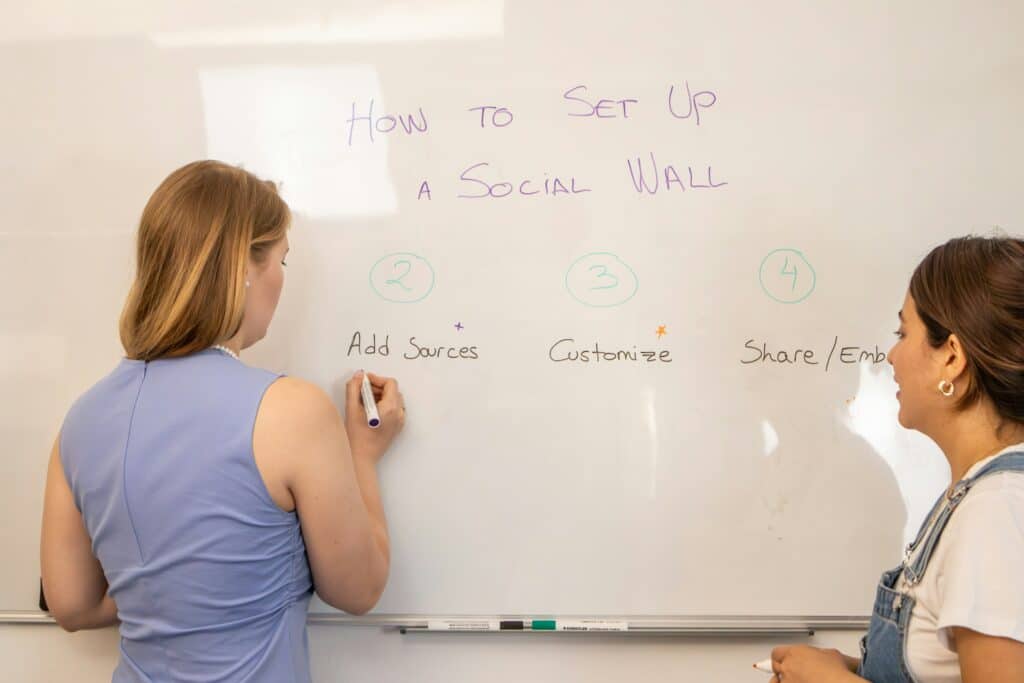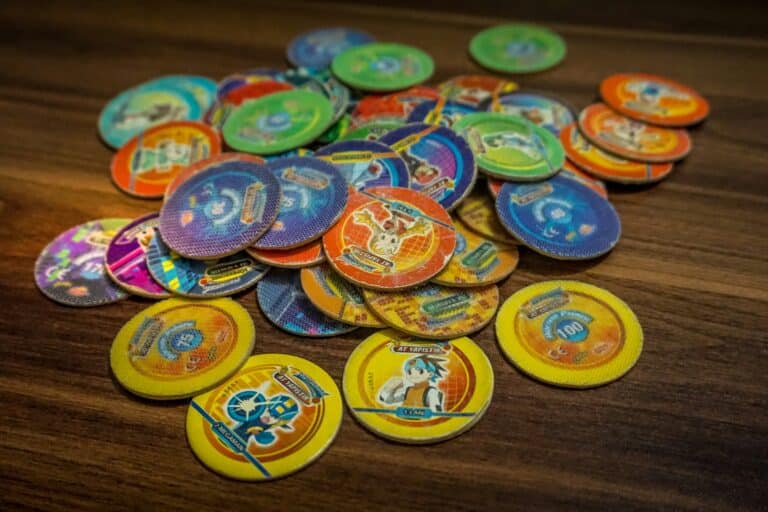This, in essence, is the promise of scenario-based quizzes, a teaching strategy that has the power to revolutionize the learning process. 🚀
Through a blend of theory and practicality, scenario-based quizzes offer learners an immersive, interactive experience, accelerating understanding and promoting long-term retention of knowledge. This engagement method provides learners with an opportunity to apply theoretical concepts in real-world contexts, enhancing their ability to recall information when needed. And that’s precisely what we are going to delve into in this comprehensive guide.
The primary focus of this article is to dissect the concept of scenario-based quizzes and how they can foster deeper learning. We’ll be exploring everything from the fundamental concepts, the benefits it brings, right down to how you can effectively implement it in your own learning environment. This isn’t just an article; it’s your roadmap to unlocking a more effective learning approach. 🗺️
The Power of Scenario-Based Quizzes
Scenario-based quizzes are much more than just a different format of testing knowledge. They are a conduit to enhance understanding, foster critical thinking, and improve memory retention. This part of the article will analyze the transformative power of scenario-based quizzes, providing evidence-based arguments to highlight their effectiveness. Expect to gain deep insights that can shape your understanding and appreciation of this powerful learning tool.
The Art of Crafting Scenario-Based Quizzes
Like a master painter with a blank canvas, creating effective scenario-based quizzes requires skill, imagination, and a good understanding of your learners’ needs. In this section, we will delve into the specifics of designing quizzes that engage, challenge, and ultimately facilitate the learning process. We will discuss various strategies and techniques, providing practical advice that will empower you to create scenario-based quizzes that truly resonate with your learners. 🎨
Implementing Scenario-Based Quizzes for Enhanced Understanding and Retention
Implementing scenario-based quizzes into your learning environment can be a game-changer. However, it’s not as simple as incorporating a few hypothetical questions into your existing curriculum. It requires careful planning, strategic thinking, and a keen understanding of your learners. In this part, we will discuss the steps to successfully integrate scenario-based quizzes into your curriculum, ensuring that you can leverage this tool to its full potential. 🏆
The journey to deeper understanding and improved knowledge retention begins with a single step. And that step starts here, with this article. So, fasten your seatbelts, and get ready to unlock the hidden potential in your learners. The journey promises to be enlightening, transformative, and most importantly, deeply rewarding. Welcome aboard! 🚀
Unlocking Deeper Learning: The Power of Scenario-Based Quizzes
In an increasingly complex world, traditional methods of learning are being re-evaluated and innovative, interactive approaches are becoming the norm. In this context, scenario-based quizzes have emerged as a powerful tool for deeper understanding and improved knowledge retention. This article will delve into the mechanics of scenario-based quizzes, exploring how they can be effectively employed to unlock the full potential of learners.
What are Scenario-Based Quizzes?
Scenario-based quizzes are interactive learning tools that present learners with realistic situations or problems related to the subject matter. Instead of mere questions and answers, these quizzes use scenarios or stories to engage the learners, test their understanding, and enhance their ability to apply knowledge in real-life contexts. The focus is on application rather than memorization, promoting critical thinking and problem-solving skills.
A typical scenario-based quiz might present a problem, provide some background information, and then ask the learner to select the most appropriate solution from a list of options. The complexity and scope of the scenarios can be adjusted according to the learner’s level and the subject matter.
For instance, a scenario-based quiz for a software engineering course might present a scenario where the learner is asked to choose the best coding approach to solve a particular problem, taking into account various constraints and requirements.
Video Example: Scenario-based Learning in Action
For a visual demonstration of scenario-based learning, check out the video “Scenario-Based Learning – Interactive Example” by Raptivity on YouTube. This video provides an excellent example of how scenarios can be integrated into quizzes to make learning more engaging and effective.
Why are Scenario-Based Quizzes Effective?
Scenario-based quizzes are effective because they engage the learner’s cognitive, emotional, and social faculties. They promote deep learning – a form of learning that involves understanding concepts at a deeper level and being able to apply the learned knowledge in different contexts. Below are some reasons why scenario-based quizzes are effective for deep learning.
Cognitive Engagement: Scenario-based quizzes require learners to think, analyze, and make decisions, engaging their cognitive faculties. By simulating real-life situations, these quizzes allow learners to apply their theoretical knowledge, enhancing their problem-solving and critical thinking skills.
Emotional Engagement: The use of realistic scenarios and stories can evoke emotions in learners, making the learning experience more engaging and memorable. Emotionally-engaging content is known to enhance memory retention.
Social Engagement: Scenario-based quizzes can also include elements of social interaction, such as group discussions or collaborative problem-solving. This can foster teamwork, communication, and other social skills, making the learning experience more holistic.
Table: Comparing Traditional Quizzes and Scenario-Based Quizzes
| Traditional Quizzes | Scenario-Based Quizzes | |
|---|---|---|
| Engagement | Low | High |
| Focus | Memorization | Application |
| Skills Developed | Recall | Critical Thinking, Problem Solving |
| Retention | Lower | Higher |
How to Create Effective Scenario-Based Quizzes?
Creating effective scenario-based quizzes involves careful planning and execution. The scenarios should be relevant, realistic, and engaging. The questions should test the learner’s understanding and ability to apply knowledge. Below are some tips to create effective scenario-based quizzes.
Define Learning Objectives: Start by defining clear and specific learning objectives. What do you want the learners to learn or achieve? This will guide the creation of scenarios and questions.
Create Relevant Scenarios: Create scenarios that are relevant to the learners and the subject matter. The scenarios should reflect real-life situations that the learners might encounter.
Ask Challenging Questions: The questions should be challenging enough to test the learner’s understanding and ability to apply knowledge. Avoid questions that merely require recall of facts.
Provide Feedback: Provide feedback after the learner answers a question. This can help the learner understand their mistakes and learn from them.
List of Useful Tools for Creating Scenario-Based Quizzes
- Articulate Storyline
- iSpring Suite
- Adobe Captivate
- Quizzler
- Google Forms
Conclusion
Scenario-based quizzes are a powerful tool for deeper understanding and improved knowledge retention. They promote deep learning by engaging the learner’s cognitive, emotional, and social faculties. With careful planning and execution, scenario-based quizzes can transform the learning experience, making it more engaging, effective, and enjoyable.

Conclusion
In conclusion, the advancements in Information Technology (IT) and Engineering fields have been monumental, dramatically transforming our lives and society as a whole. As we have navigated through this comprehensive article, we’ve delved into numerous topics and areas in detail, showcasing the extent of these advancements and their profound impact.
We started our journey by exploring the different domains of IT, from software development, data management, network administration, to cybersecurity. We delved into the importance of each domain and how they intertwine to create complex, robust, and efficient IT systems that drive our digital world. The potential of these domains, especially with the advent of emerging technologies like artificial intelligence, cloud computing, and blockchain, is immense and is only expected to grow in the future 📈.
We also discussed various aspects of engineering, particularly how it intersects with IT. We took a deep dive into software engineering, understanding its principles, methodologies, and the integral role it plays in developing high-quality software. We also touched upon other branches of engineering such as electrical, mechanical, and civil, underscoring their continued relevance in our increasingly digitized world.
Moreover, we illuminated the importance of technical writing in both IT and engineering, a skill that I, Rodrigo Almeida, have honed over the past decade. We underlined how technical writing serves as a bridge between experts and non-experts, enabling the latter to understand and leverage these complex technologies effectively 🌉.
As we culminate this article, I want to impress upon you the immense value of IT and Engineering in our lives. The ongoing digital transformation is an opportunity for all of us to learn, adapt, and grow. I encourage you to delve deeper into these topics, be it through further reading, online courses, or hands-on projects. Your contributions and participation in these fields are essential for driving our society forward 🚀.
I invite you to share your thoughts, experiences, and insights in the comments below. Let’s engage in meaningful conversations and learn from each other 👥. If you found this article useful, I encourage you to share it with others who might benefit from it.
Remember, knowledge is power, but sharing knowledge is empowering! 💡
For further reading, I recommend the following resources:
– MIT Technology Review
– Nature Reviews Materials
– IEEE Xplore
Thank you for taking the time to read this article. I look forward to hearing from you and engaging in further discussions.
Keep learning, keep growing, and keep making a difference! 👋🏽
Tags: #IT #Engineering #TechnicalWriting #SoftwareEngineering #DigitalTransformation
References: MIT Technology Review, Nature Reviews Materials, IEEE Xplore



